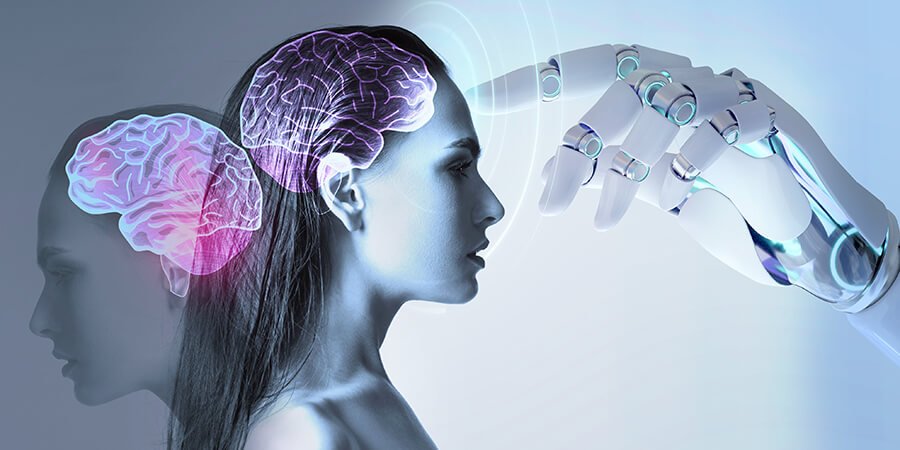The intersection of Artificial Intelligence and mental health has emerged as a promising frontier in healthcare, offering innovative solutions to address the global burden of mental illness. From early detection and diagnosis to personalized treatment and support, AI technologies hold the potential to revolutionize how mental health conditions are understood, managed, and treated. In this article, we’ll explore the role of AI in mental health care, examining its applications, benefits, and ethical considerations.
Contents
Understanding Mental Health
The Complexity of Mental Illness
Mental health disorders encompass a wide range of conditions that affect mood, cognition, and behavior, with varying degrees of severity and impact on daily functioning. From common disorders like depression and anxiety to less prevalent conditions such as schizophrenia and bipolar disorder, mental illness manifests in diverse ways and can significantly impair individuals’ quality of life. Factors such as genetics, environment, and life experiences contribute to the onset and progression of mental health disorders, highlighting the need for comprehensive, multidisciplinary approaches to assessment and treatment.
The Global Impact
The prevalence of mental health disorders is a significant public health concern, with millions of individuals worldwide experiencing symptoms that impair their well-being and functioning. According to the World Health Organization (WHO), depression is the leading cause of disability globally, affecting over 264 million people of all ages. Anxiety disorders, meanwhile, rank among the most prevalent mental health conditions, with an estimated 284 million individuals affected worldwide. Despite the widespread impact of mental illness, access to timely and appropriate mental health care remains a challenge for many, particularly in low-resource settings and underserved communities.

Leveraging AI for Mental Health Care
Early Detection and Diagnosis
Artificial Intelligence holds immense potential for improving the early detection and diagnosis of mental health disorders by analyzing patterns in behavioral, linguistic, and physiological data. Machine learning algorithms can sift through vast amounts of data collected from electronic health records, wearable devices, and digital interactions to identify subtle indicators of mental health concerns. For example, natural language processing (NLP) algorithms can analyze text data from social media posts or clinical interviews to detect linguistic markers associated with depression or anxiety. Similarly, smartphone apps equipped with sensors can track changes in users’ movement, sleep patterns, and social interactions, providing valuable insights into their mental health status.
Personalized Treatment and Intervention
One of the most promising applications of Artificial Intelligence in mental health care is the development of personalized treatment approaches tailored to individuals’ unique needs and characteristics. By analyzing large datasets of clinical outcomes, genetic profiles, and treatment responses, Artificial Intelligence algorithms can identify biomarkers and treatment predictors that inform more targeted and effective interventions. For example, pharmacogenomic testing combined with machine learning algorithms can help clinicians predict how individuals will respond to different medications, enabling them to prescribe the most appropriate treatment for each patient. Moreover, AI-driven virtual therapists and chatbots offer scalable, on-demand support and psychoeducation, providing individuals with personalized coping strategies and resources to manage their mental health more effectively.
Ethical Considerations and Challenges

Privacy and Data Security
The use of Artificial Intelligence in mental health care raises significant concerns about privacy, confidentiality, and data security. The collection and analysis of sensitive health data, including information about individuals’ mental health status and treatment history, pose risks of unauthorized access, misuse, and breaches of confidentiality.
Moreover, Artificial Intelligence algorithms trained on biased or incomplete datasets may inadvertently perpetuate disparities and discrimination in mental health care delivery, exacerbating existing inequities in access and treatment outcomes. To address these challenges, stakeholders must prioritize robust data protection measures, transparency, and accountability in Artificial Intelligence-driven mental health interventions.
Human-Machine Interaction
The integration of Artificial Intelligence technologies into mental health care also raises questions about the nature of the therapeutic relationship and the role of human clinicians versus AI-driven interventions. While Artificial Intelligence tools can provide valuable support and guidance, they cannot replace the human empathy, intuition, and insight that are integral to effective mental health care.
Striking a balance between human and machine involvement is essential to ensure that Artificial Intelligence complements rather than supplants the human touch in mental health treatment. Moreover, clinicians must receive adequate training and support to effectively integrate Artificial Intelligence technologies into their practice and navigate the complexities of human-machine interaction in therapeutic settings.
Equity and Bias
The use of Artificial Intelligence in mental health care raises concerns about equity and bias in treatment delivery and outcomes. Artificial Intelligence algorithms trained on biased or unrepresentative datasets may perpetuate existing disparities in access to care, diagnosis, and treatment recommendations. For example, algorithms trained primarily on data from affluent, predominantly white populations may not accurately capture the experiences and needs of marginalized communities, leading to disparities in diagnosis and treatment recommendations.
Moreover, AI-driven decision-making processes may inadvertently amplify existing biases in healthcare systems, such as racial or socioeconomic disparities in access to care and treatment outcomes. To mitigate these risks, stakeholders must prioritize diversity and inclusivity in dataset collection and algorithm development, ensuring that Artificial Intelligence-driven interventions are equitable, unbiased, and representative of the diverse populations they serve. Additionally, ongoing monitoring and evaluation of Artificial Intelligence systems are essential to identify and address biases that may emerge over time, promoting fairness and equity in mental health care delivery.
Conclusion
The convergence of Artificial Intelligence and mental health holds tremendous promise for transforming the landscape of mental health care, offering new opportunities for early detection, personalized treatment, and support. By harnessing the power of AI technologies responsibly and ethically, we can address longstanding challenges in mental health care delivery and improve outcomes for individuals affected by mental illness. As we navigate the complexities of integrating AI into mental health care, it is imperative to remain vigilant to the ethical considerations and challenges inherent in this endeavor, ensuring that AI-driven interventions uphold the principles of equity, autonomy, and dignity for all. Through collaborative efforts and continued innovation, we can unlock the full potential of AI to enhance mental health care and promote the well-being of individuals and communities worldwide.




